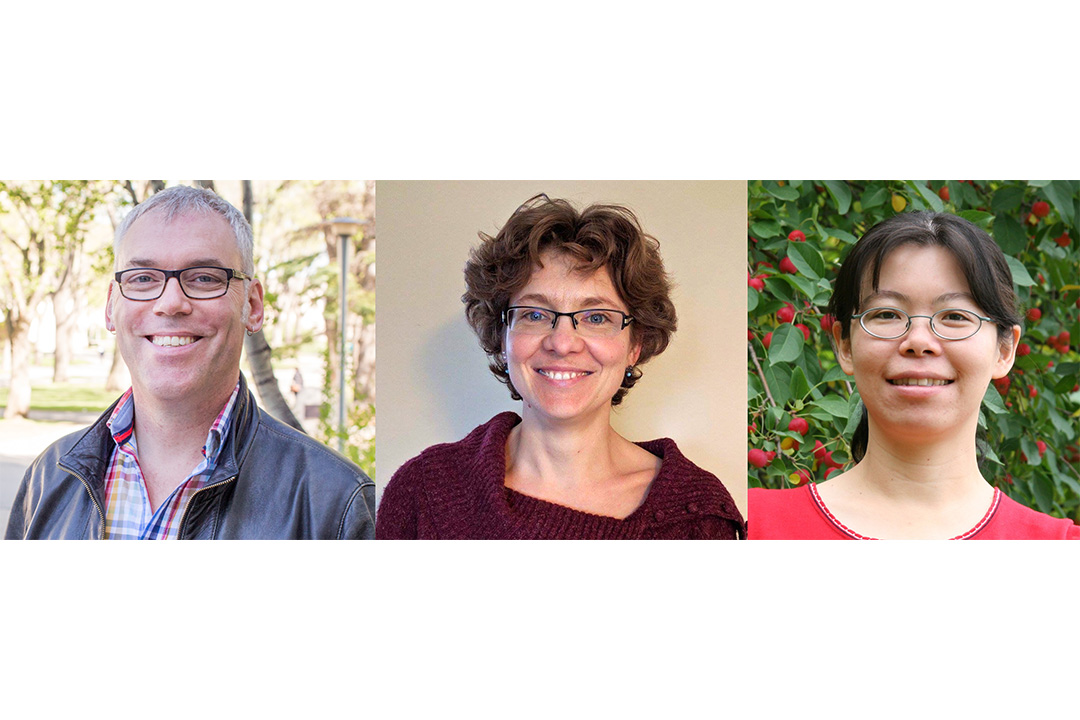
USask projects awarded $1.73M for social sciences and humanities research
University of Saskatchewan (USask) researchers have been awarded a total of more than $1.73 million in federal funding to examine critical societal questions in areas ranging from anthropology to philosophy. Forty per cent of the funding will support projects focused on Indigenous peoples.
By USask Research Profile and Impact“Investment in these nine exciting USask research projects, several of which involve national and international partners, will support new approaches to complex and important topics including impacts of oilsands extraction on First Nations and Métis communities and Indigenous language preservation,” said USask Vice-President Research Karen Chad.
Canada’s Social Sciences and Humanities Research Council (SSHRC) has committed the new funding for two to five years for the USask-led projects, plus an additional two projects with USask co-applicants or collaborators.
USask anthropologist Clint Westman, working with USask archeologist Glenn Stuart and eight other researchers from five universities across Western Canada, has been awarded nearly $360,000 to examine the impacts of oilsands extraction in northern Alberta on First Nations and Métis.
“We’re going to be shining a light on the processes of engaging Indigenous people in northern Alberta and on the impacts and benefits,” said Westman. “Once agreements with industry and government are in place, there’s not enough monitoring of how these agreements and consultation processes continue to affect people.”
Westman’s research will embark on a broad, interdisciplinary examination over five years of how government and industry processes affect Indigenous peoples with respect to food security and safety, environmental health, worker experience, and changes to cultural sites. These impacts are in addition to environmental and other impacts enumerated by the federal government.
“Companies have acknowledged that they’re affecting ceremonial sites, but that hasn’t changed anything in what gets approved,” said Westman. “We will try to learn from the processes through an anthropological perspective, and also to critique them for where there are gaps.”
When the research is completed in 2025, Westman and his colleagues intend to share the outcomes with a broad range of communities and organizations across the country.
With a $333,124 grant, USask linguistics researcher Olga Lovick will work with a University of Zurich researcher and Dene Suline language speakers in Clearwater River Dene Nation and La Loche in Saskatchewan to document, describe, and preserve the nuances of the language which is currently undergoing a major change to its structure. The team will conduct a study into linguistic variation within the two communities, which are among the last in Canada where the Dene language is still being used as a first language.
“Dene is very vital in these communities as it is used as the daily language by people of all ages,” said Lovick. “What’s concerning is that there has been a decline in Dene-speaking children entering the school system.”
Working with local language and culture committees, Lovick and a team of research assistants from the communities will record more than 100 hours of Dene speakers and transcribe texts to create bilingual stories and read-along books for classroom use.
USask education researcher Pei-Ying Lin has been awarded more than $271,000 for a project to understand how Canadian teachers make decisions on how best to help students who have learning disabilities.
“Accommodations such as providing extra time for tests or reading texts aloud, if used properly, can help ensure that the one in 10 Canadians reported to have learning disabilities can be evaluated on an equal basis with other students,” said Lin.
Lin’s team will work to develop a first-of-its-kind evidence-based, online teacher decision-making program to help provide teachers across the country with training.
Other USask-led projects awarded SSHRC Insight Grants are:
- Investigating the role of consistent and stable tax environments on economic development and global competitiveness—led by Edwards School of Business accounting researcher Devan Mescall
- Understanding competing explanations for why many published scientific statistical results fail to replicate—led by USask philosophy researcher Robert Hudson
- Understanding structural characteristics and impacts of online social networks such as Etsy on the performance of online merchants—led by Edwards School of Business finance researcher Shan Wang
- Improving online learning by better understanding collective social and interpersonal interactions among students—led by education researcher David Mykota, collaborating with Pei-Ying Lin
- Using theatre to combat workplace harassment among health care workers: Led by USask sociologist Dr. Elizabeth Quinlan (PhD), the project involves health-care aides creating and performing pieces of theatre based on their real-life experiences of harassment. Taking place online due to COVID-19, the project aims to develop strategies to change workplace culture and address harassment, which is known to cause anxiety, sleep disturbances, and depression in health care workers
- Investigating the impact of “patient influencers”—non-professionals who share health information in online communities. Led by Edwards School of Business marketing researcher Dr. Marjorie Delbaere (PhD), the results could improve how well patients follow medical advice, as well as help public health officials develop more effective communication strategies and understand why patients turn to non-medical online sources for health information
Projects with USask co-applicants or collaborators are:
- Psychology of online disinformation—led by University of Regina researcher Gordon Pennycook, collaborating with USask cognitive psychology researcher Valerie Thompson
- Indigenous-led collaboration in the Indigenous literary arts– led by Simon Fraser University English professor Sophie McCall, with co-applicant Kristina Bidwell, USask English professor
See the details of the other projects funded by SSHRC Insight Grants: https://www.sshrc-crsh.gc.ca/news_room-salle_de_presse/latest_news-nouvelles_recentes/2020/insight_grants-subventions_savoir-eng.aspx

